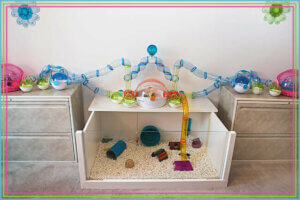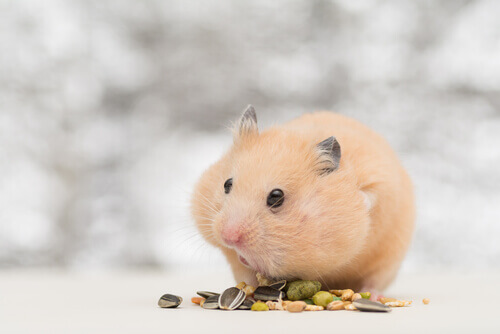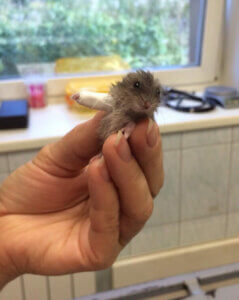Bringing a Hamster Home

Hamsters can be excellent pets and, in fact, they become the first pet for many children. They’re easy to care for and are intelligent. Nevertheless, prior to bringing a hamster home we shouldn’t neglect the following tips.
Prepare its cage or habitat
Due to its small size and its ability to gnaw on potentially dangerous wires, your hamster should have a cage to live in. This cage should be ready to accommodate the hamster before it enters the house. Thus, you don’t have to worry about getting it settled, nor about the risk of escaping.
Even if most hamsters live in small cages, you can choose other options: a larger one, and even a habitat made by yourself and without bars. There are many alternatives and, the more space it has, the happier your little rodent will be.
Inside its cage, you should have the following spaces:
- A secluded sleeping area, such as a hide box
- Feeding and drinking area
- Toys to gnaw on, climb up on and hide in
There are many objects placed in hamster cages that can be dangerous for them. For example, there are certain types of wheels that can hurt their backs or cause a lot of damage to the radial bones.
In the same way, if you want it to have a ball to run around the house, look for one that’s wide and doesn’t force it to twist its back when running. It could hurt itself, and an animal in pain can’t be happy.

Inside their habitat, you can try to build toys or different areas of fun or entertainment, all made by yourself. With recycled materials you can build a tunnel, a staircase, or even leave it a cereal bar to gnaw on.
Prepare the fridge before bringing a hamster home
Before adopting a hamster, you should know what it can eat and what foods are toxic for it. Days before your new friend arrives at home, find out what types of foods are available and what you can give it. Also, check different places where you can buy its food.
A hamster can be fed with feed and other processed foods, but they aren’t usually the healthiest option. They’re herbivorous animals, so the fresh food you give them should be made up exclusively of well-washed raw fruit and vegetables.
You can feed it fruits such as apples, pears, bananas or cherries. As for vegetables, they usually like carrots, broccoli, chard, endive or green beans. Have a few ready in the fridge before bringing the hamster home, and try different combinations to discover which one it likes best.
Also, hamsters love seeds and nuts. More than processed feed, it’ll enjoy a mix of sunflower seeds, flax, corn and nuts, for example.

In contrast, apple seeds contain poisonous substances that could kill it. The list of forbidden foods also includes hazelnuts, grape seeds, spicy foods, and garlic.
Decide on the involvement of each family member
As with any animal, rules should be established before bringing a hamster home. This way, the entire family knows their responsibilities regarding the new pet.
Among other things, you should decide who’ll be in charge of feeding it, making sure it always has fresh water. You shouldn’t forget about the hygiene of the cage. Its health depends on it living in a clean and hygienic place.
The hamster is a nocturnal animal, which means that during the night it has its largest period of activity: it usually runs around, gets on its wheel, and gnaws, making a lot of noise. Put the cage in a room where it won’t bother anyone, and try not to change its location too often.
Find a vet who can take care of it before bringing the hamster home
Hamsters are small rodents, but they can also get sick. Before bringing a hamster home, you should know which vets in your area could take care of it in case it gets sick or an accident occurs.

Its health is as important as that of any other animal. However, it should receive treatment from an exotic animal veterinarian who has experience in handling such a small body. On the first visit, you should ask about deworming and if they have a vaccination schedule.
Hamsters are small animals, but we shouldn’t neglect their safety and feeding. Before bringing a hamster home, you should make a few preparations. This way, your little friend can start off on the right foot with its new family.
This text is provided for informational purposes only and does not replace consultation with a professional. If in doubt, consult your specialist.